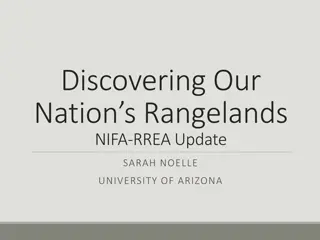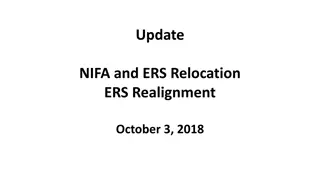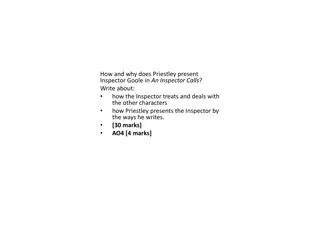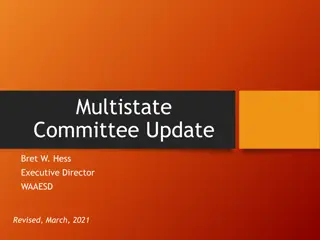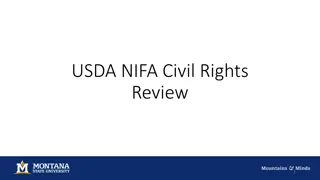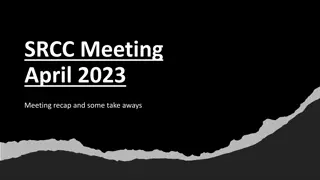
Legal Duty of Experts and Arbitrators in Court Cases
Explore the essential duties of experts and arbitrators in legal proceedings, ensuring fair treatment, cost-effectiveness, and expeditious resolution. Learn about single joint experts, proportionate expert usage, and the overarching objective of courts.
Download Presentation

Please find below an Image/Link to download the presentation.
The content on the website is provided AS IS for your information and personal use only. It may not be sold, licensed, or shared on other websites without obtaining consent from the author. If you encounter any issues during the download, it is possible that the publisher has removed the file from their server.
You are allowed to download the files provided on this website for personal or commercial use, subject to the condition that they are used lawfully. All files are the property of their respective owners.
The content on the website is provided AS IS for your information and personal use only. It may not be sold, licensed, or shared on other websites without obtaining consent from the author.
E N D
Presentation Transcript
A cacophony of experts (and some of my pet hates) Justina Stewart 7 June 2017
Duty of the court overriding objective Dealing with cases justly and at proportionate cost : Ensuring that the parties are on an equal footing Saving expense Proportionate to: Amount of money involved Importance of the case Complexity of the issues Financial position of each party Ensuring dealt with expeditiously and fairly Allotting appropriate share of the court s resources
Duty of the Arbitrator s.33 of the Arbitration Act 1996 (a) act fairly and impartially as between the parties, giving each party a reasonable opportunity of putting his case and dealing with that of his opponent, and (b) adopt procedures suitable to the circumstances of the particular case, avoiding unnecessary delay or expense, so as to provide a fair means for the resolution of the matters falling to be determined.
Single joint expert? Expert instructed to prepare report for court on behalf of 2 or more parties Radical concept Rationale: Savings in cost and delay More likely to be impartial Likely to increase prospects of settlement Effective way of levelling playing field between parties of unequal resources
Single joint expert? (2) Access to Justice, Final Report, Lord Woolf P (A Child) v Mid Kent Area Healthcare NHS Trust [2001] EWCA Civ 1703: The starting point is: unless there is reason for not having a single expert, there should be only a single expert Central point - court has wide discretion now embodied in Part 35 Practice Direction
CPR Part 35 Practice Direction paragraph 7 Is it proportionate to have separate experts (amount in dispute, importance to parties, complexity)? Is SJE likely to assist the parties and court to resolve the issue more speedily and in a more cost-effective way Is expert evidence to be given on the issue of liability, causation or quantum Does the expert evidence falls within a substantially established area of knowledge which is unlikely to be in dispute or there is likely to be a range of expert opinion Has a party already instructed an expert on the issue in question (and was this in compliance with any practice direction or relevant pre-action protocol)
CPR Part 35 Practice Direction paragraph 7 Questions in accordance with rule 35.6 are likely to remove the need for the other party to instruct an expert if one party has already instructed an expert Questions put to SJE may not conclusively deal with all issues that may require testing prior to trial Instruction of SJE may be impractical if conference required Claim to privilege may render SJE inappropriate
Own party expert after SJE Daniels v Walker [2000] 1 WLR 1382, CA, per Lord Woolf MR: If seeks further expert for reasons that are not fanciful Sensible view is not to ask the court straight away, but put questions to SJE Modest sum more rigorous approach. At most just ask questions Even if separate experts, cross-examination only as a last resort
But ultimately . Cosgrove v Pattison [2001] CP Rep 68 Nature and nature of issues Reason new expert wanted Amount at stake if not purely money, nature of issues at stake and importance Effect on conduct of trial Delay in making application Delay caused by further expert the overall justice to the parties in the context of the litigation
Is there a hurdle if seeking own-expert? Daniels v Walker for reasons that are not fanciful Pattison v Mid-Kent Healthcare Trust [2001] EWCA Civ 1703: where parties agree that there should be a single joint expert, and a single joint expert produces a report, it is possible for the court still to permit a party to instruct his or her own expert and for that expert to be called at the hearing. However there must be good reason for that course to be adopted .. But Bulic v Harwoods [2012] EWHC 3657 (QB)
Own expert refused can SJE be cross- examined? Not normally Clarification of report should be answered by asking written questions Woolley v Essex CC [2006] EWCA Civ 753 PD 35.28 (para 47) But in theory it could still be a bloodbath
Use by expert A of report from expert B Civil Evidence Act 1995 allows hearsay But CPR 35.4(1) Humber Oil Terminals Trustee Limited v Associated British Ports (2012) EWHC 1336 CA But Roger v Hoyle (2016) QB 265 Mondial Assistance (UK) Limited v Bridgewater Properties Limited (2016) EWHC 3494 (Ch)
Top tips (my pet hates) Don t appear partisan Show working Don t miss out key stages in analysis e.g. causation Put complex concepts into plain English
An expert knows all the answers - if you ask the right questions. Levi Strauss



